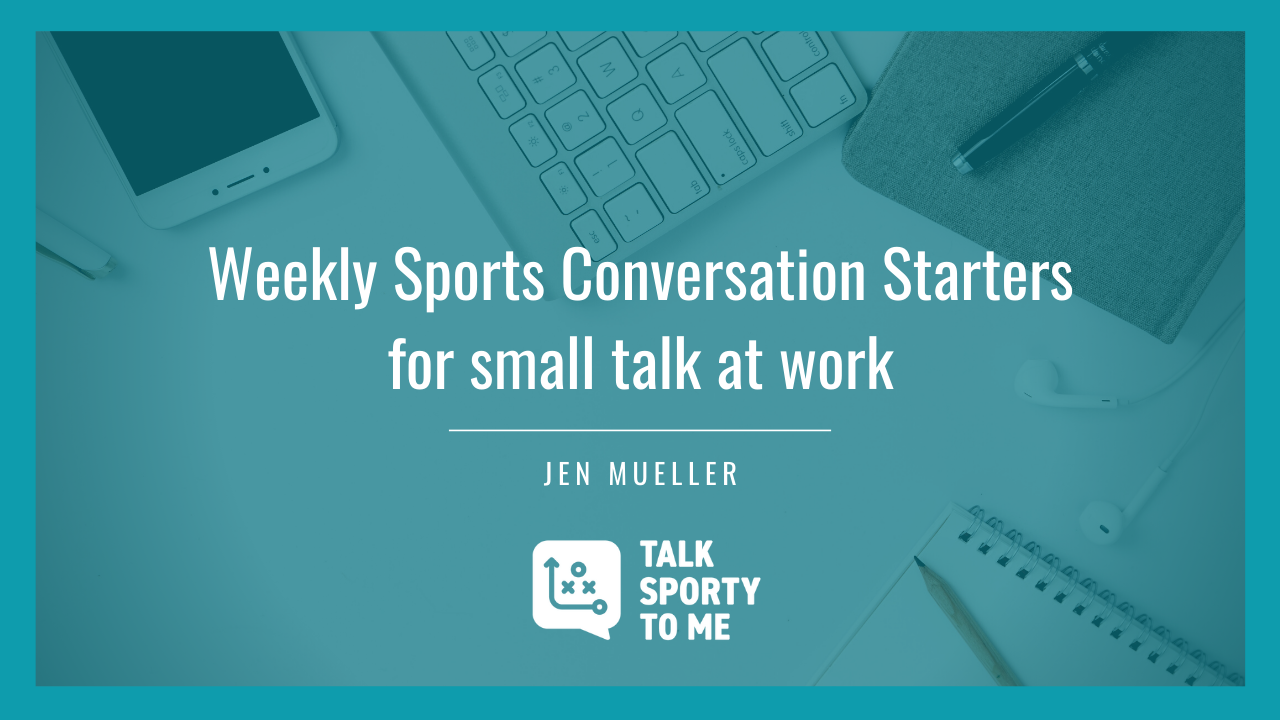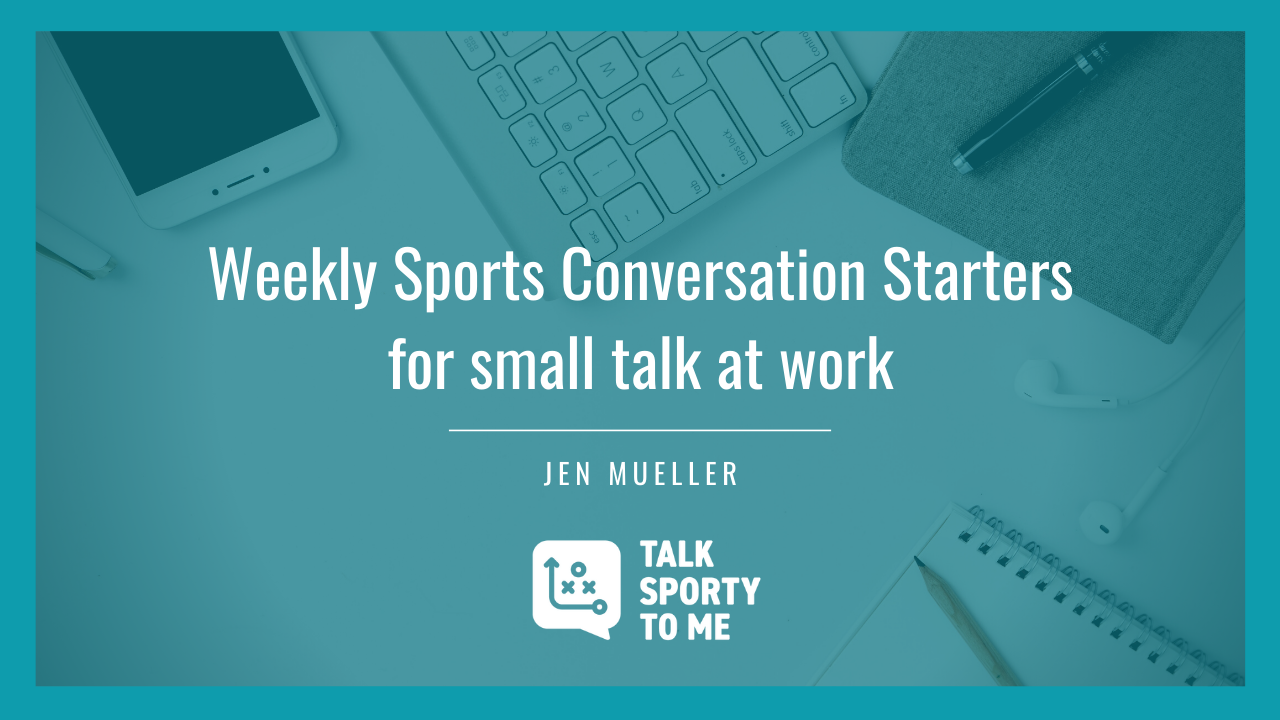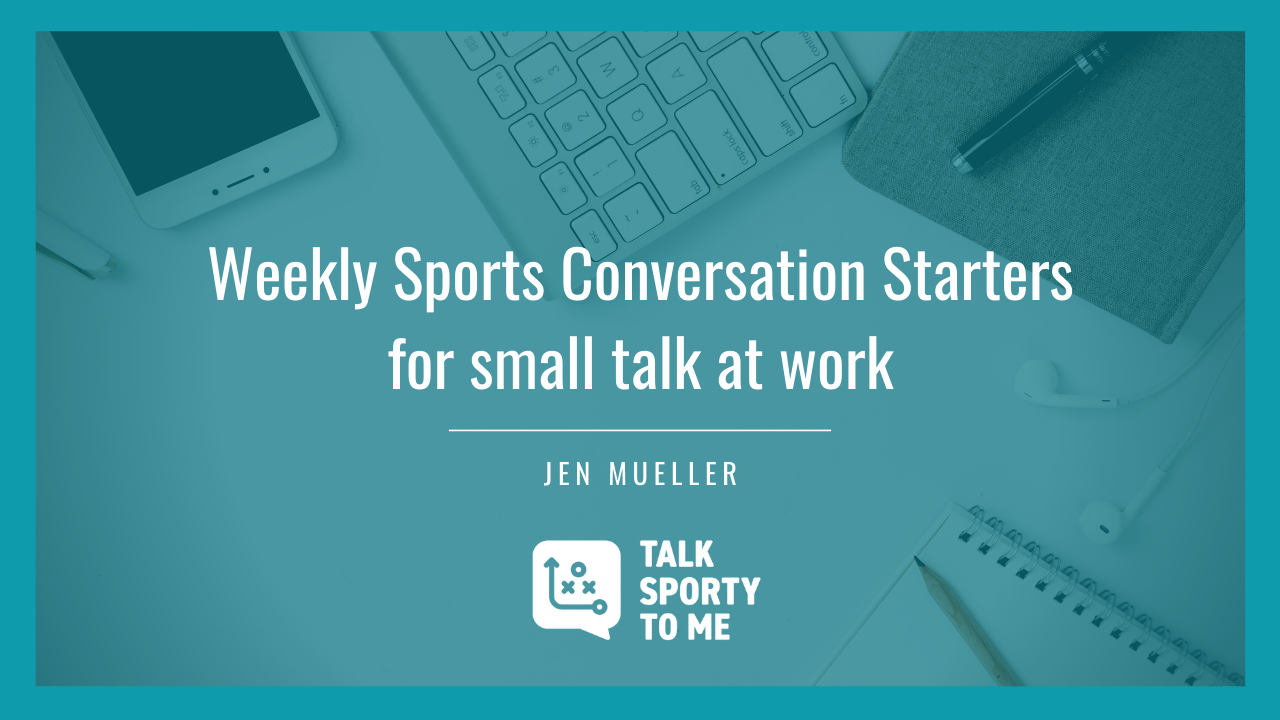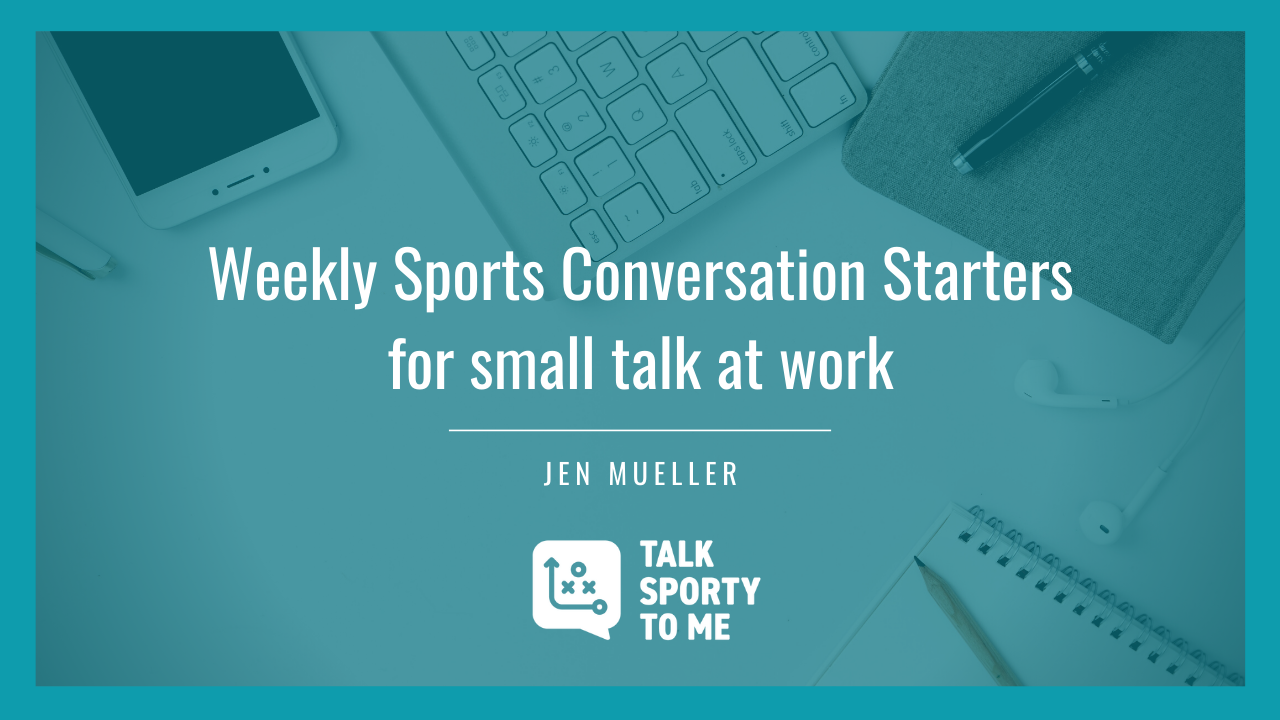If you, like Julie Andrews, believe the beginning is the very best place to start then this is the very best time to become a football fan or at the v...
A lot of sports talk focuses on the “Big 4” of football, baseball, basketball and hockey because they tend to be the most popular, most talked about a...
When I think about connecting or networking I’m usually focused on who I need to meet or my objectives for building relationships. But sometimes its h...
Here’s a small challenge for you this week… substitute one of your go-to words or phrases for something new.
It’s an easy thing to practice in sports...
The more clarity you can provide in a conversation the easier the interaction becomes. Clarity can also help make a conversation more meaningful, espe...
Sports talk doesn’t have to be about sports. Sometimes sports is just the entry point to a topic that’s more entertaining or relevant to you. In other...
I know the old adage says if you fail to prepare you're preparing to fail, but guess what? You're going to fail anyway. Maybe not at that moment or du...
“Do you know who won?”
I had already seen the alert cross my phone. I knew Rory McIlroy won the Scottish Open. My husband had not so he happily spent...
Part cooking instruction, part entertainment and all about connecting over food and wine.
That's how I describe my cooking show "I Cook, You Measure...
I had a chance to visit family over the weekend including my sports-loving niece and nephew. Both play sports and watch sports, but for very different...
Yes, I really did include competitive eating in this week’s list of sports conversation starters. It’s part of Fourth of July activities and tradition...
The assignment seemed easy and fun when I was asked to be part of a panel of judges for the Miss Washington pageant in 2021.
Then I sat through my fi...

















